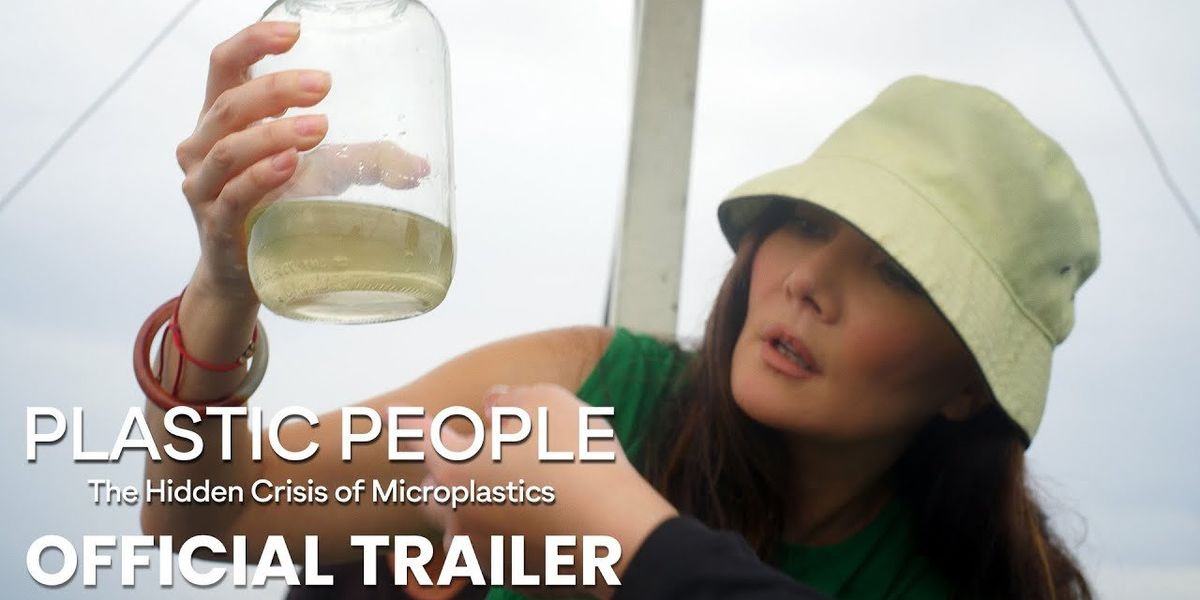Op-ed: “Plastic People” — A documentary that changed my view on plastics
The plastic crisis has evolved from an environmental concern to a critical human health issue.
AUSTIN, TX — At SXSW, a new documentary highlighted the harmful effects of plastics on human health and opened my eyes to this widespread crisis.
Upon arriving at the premiere of Plastic People, I felt well-informed about plastics. However, throughout the film I discovered new insights, including the production process, impacts on the human body from the harmful chemicals in plastics, and potential solutions. I was captivated.
Here are the five key points I took away from the film.
1. There is no way to avoid exposure to plastic
Plastic has become such a staple in our everyday lives that avoiding it completely is a massive challenge, if not impossible. It is everywhere — from the highest mountains to the deepest parts of our oceans. If you take a closer look at your favorite products, you'll probably notice that many of them contain plastic. All of us carry traces of plastics in our bodies, regardless of efforts to minimize exposure.
2. Plastics never disappear, they just break down into tinier particles
Plastics, once created, become a permanent presence in our environment. This is due to microplastics, which are tiny particles that form when plastics break down rather than decompose and disappear. These fragments find their way into our food, water, plants, crops, oceans, and other places. We often hear that recycling is the answer, but in reality, recycling is no more than a band-aid solution. The only real solution is to stop producing these harmful products.
3. Research of the effects of microplastics on the human body is limited
I was surprised to learn that we are just beginning to study the effects plastics have on human health. Some of the chemicals in plastics we are familiar with – flame retardants, PFAS, BPA, phthalates, and others – and we already know are harmful. These substances are associated with health issues like obesity, infertility, cancer, heart disease, and more. Environmental Health Sciences’ founder and Chief Scientist, Pete Myers — who is featured in the film — also noted how plastics negatively impact sperm count, and that by 2045, many males will not be able to reproduce as easily. It's even more frightening to imagine the potential effects that unknown chemicals in plastics may have on our health.
4. Plastic production is directly linked to oil and gas companies
I've often heard of the link between environmental chemicals and major corporations. This close relationship means the demand for plastic directly impacts the demand for fossil fuels. One resident in the film highlighted how a nearby petrochemical plant was polluting their town with high benzene levels, despite the safe level of benzene being zero. Petrochemical plants — which process fossil fuels into chemicals — across the United States are contaminating nearby communities, and a majority of plastics are derived from petrochemicals. These companies intend to triple their plastic consumption by 2060. It's alarming to think that major corporations are considering increasing plastic consumption when we are already struggling to handle the current production levels.
5. The solution is not on us. The only way out is reducing the amount that we produce
l couldn’t help but wonder “What are we supposed to do about this?” Past generations encountered pollution challenges and addressed them. Why are we not doing the same? We can work individually to reduce plastics in our homes and everyday lives, but that will not resolve the issue entirely. We need to redesign these products and the hazardous chemicals in them.
For those who may not be fully informed about the health impacts of plastics, this documentary serves as a huge eye-opener. It can be frustrating to discover that the products we trust to be "safe" and are exposed to in our daily lives are actually harming us. This documentary shines light on the issue, promotes awareness, and will hopefully drive change.
To learn more about the Plastic People film, visit their website here.














